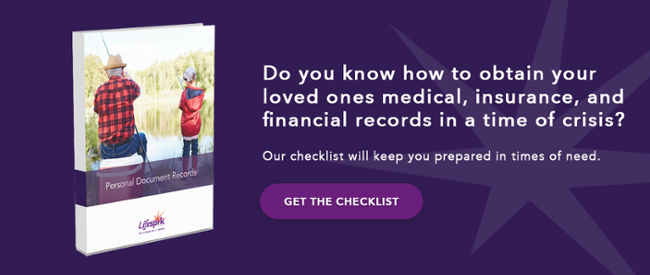Do these elder care scenes sound familiar?
Mom age 85 drives a couple times a week to pick up groceries and her prescriptions but the kids keep urging her to give up driving. Eighty-seven year-old Dad just had another fall and the family keeps asking him to consider moving to be safer. It is an age-old elder care tug-of-war. Adult children worry because they care. They want Mom and Dad to be safe.
The Ultimate Path to Safety is Through Prevention
What most families don’t realize is that prevention is the truly the best medicine. We see it all the time at Lifesprk. With most traditional home and elder care providers, services are reactive – meaning they are put in place AFTER something has happened. Then those services are primarily comprised of caregiving support by a trained aide, not a professional. The aides provide great elder caregiving support, helping with such activities of daily living like personal care, errands, meal preparation, and mobility. They can be amazing, talented, and caring individuals.
But what’s missing is the professional guidance – a specially trained nurse who gets to know the client through regular interactions and can use her professional skills to monitor and identify health and other risk factors as an early warning system.
Prohab to Build Strength BEFORE a Fall
“It helps families to know that at Lifesprk we take a whole person proactive approach to catching little concerns before they become major issues, which helps to keep people safe. For example, we talk about concepts like prohab – which to us means that rather than being reactive with rehab services after an injury or a fall, we work proactively to identify opportunities to build strength and functioning to help prevent as much as possible a future health care crisis,” says Kathy Christians, RN, Director of Life Care Integration.
Anticipate Changes, Feel in Control
“We may not prevent every eventuality,” says Mary Claire, RN, Life Care Manager (LCM), “but every issue we catch early or prevent is one less they face which improves their overall safety. The path for people through life is rarely a straight one, and by being involved as an LCM, I can help people anticipate those changes, feel in control, and help them stay on their path regardless of what they may face. We can’t eliminate every challenge, but I can help smooth the path and help them face each challenge confidently.” And that is the ultimate path to safety.
Julie Flanagan, RN, LCM agrees, adding: “Using a proactive approach ideally gives us a chance to develop a relationship enabling us to learn about and discover a client’s preferred lifestyle choices. By being able to understand their desires, abilities, ideals, preferences, values and capabilities, LCMs can then easily relate and individualize each client’s Life Plan based off of what is realistic and attainable within a client’s lifestyle. For example, when a LCM begins working with a client in the early stages of dementia, she can monitor for changes or safety concerns, and when it is necessary to make changes in the level of care, can help the client and family better understand their options to make more gradual transitions to added levels of support rather than extreme changes.
Proactive Approach Builds Engagement Too
Because the Lifesprk model digs deeper into people’s goals and personal priorities, people become more engaged in the effort because they see it leading to goals they care about, which leads to better success.
“Being proactive requires really looking at things in a clear light, determining the dominant issues and helping people understand the wants, needs, and resources involved,” adds Mary Claire.
Most importantly, stresses Kathy, “every time we build someone’s strength and get them back to the activities and interests that give their life purpose, we are reducing their need for care and saving them money in the long-term.”
Share your experiences about how prevention has helped your older loved one. And if you are looking for proactive support, or just want to better understand the options for keeping your aging parent safe and as independent as possible, call Lifesprk Navigation for a free consultation: 952-345-0919.
And download a copy of ‘What’s Missing’ to discover what you should know about home care options to make the most informed choice.



